View current news articles, commentary, videos and more having an impact on Jewish culture, politics and religion at Rabbi Silverman's Sites to See
As we sit in our sukkoth, reminding us that we aspire for God to spread over us a Sukkah of Peace, we turn our thoughts and reflections to the State of Israel. I thought this sermon recently given would be food for thought.
The portion, Ki Tavo speaks of pillars to be plastered and carved when crossing the Jordan. We were told to make twelve pillars with the words of the Torah carved in Hebrew. Some understand that these are to be left, and a new set of stones carved on Mt. Grizim in Samaria. Others, that these same pillars be erected on Mt. Grizim, but plastered anew, and this time more clearly carved. About this our midrash says ketov al ha avanim baer Hetev. It means write it on the stones in seventy languages for all of the world to get the message of Torah.
One wonders why they needed to do the task twice. Why write it only in Hebrew the first time, and only after, in the land on the mountains in Samaria, should they then be written in seventy languages? Why not do the opposite? Let them see the Torah in languages they understand outside of Israel! Why do both at all? Our sages answer that Israel must first carve out its own distinct identity before it can give to the world. It would be nice to be “all one” as some Eastern religions strive to accomplish. But Judaism is not this way. Rabbi David Zemmel, in his book, The Soul is the Story, puts it this way: Humanity is the whole body. But the whole body cannot function with all the organs being "as one." A liver needs to be a liver and a spleen a spleen. Individuated, each organ contributes to the beautiful functioning of the whole. If every religious culture was a liver, humanity at large would be in big trouble. As Y.L. Peretz put it, in the time of the Messiah we will all bring our individual brand of wheat to the Universal Silo. Until that time, each people must cultivate their own brand. Diversity is the name of the game. Viva la difference is the order of the day.
So it was important that the entire Torah be written out first in Hebrew and absorbed as the inheritance of one people–the mission of one religious entity. Only then can that religious Peoplehood have the strength to convey it to world at large. As I read much of the criticism of the new Basic Law (Nation-State Law) which the Israeli Knesset approved last month, I get the idea that many would wish Israel to be for every culture and every language. I believe, however, that this is asking more of the State of Israel than is either possible or ideal. If Ruven Rivlin, the President of Israel, calls some of its language problematic for minorities in Israel–that some terminology may emotionally disenfranchise them–then clearly some changes are warranted. But not its basic premise. It bothers me that so many Jewish organizations have given this impression.
Its basic premise is that The State of Israel is the one and only Nation State of the Jewish People. It was declared so from the get-go, both by the Zionist Congress in 1897 who birthed Zionism and the British who bequeath a far larger territory in Lord Balfour’s time, 20 years later, as a place for a “Jewish Homeland.” As such, Israel and Jewish Israelis have a right to declare that it is a State, wherein self-determination is to be realized by the Jewish People. Israel and the Jewish Israelis therein have a right to declare Hebrew the national language and those of Jewish origin to have the right of return. That, after all, is the point of a Jewish State. Furthermore, this always implicit understanding about Israel’s raison d’etre was necessarily explicit by calls to make it a bi-national state and to dissolve the Jewish majority through Palestinian immigration. It is made necessary by those who claim Jews are not indigenous to the land of Israel but rather, Palestinians are, Which is, historically, patently false. It was made necessary by BDS, designed to dismantle Israel as a Jewish State. And it is made necessary by the adamant refusal of Palestinian leadership to establish a state and coexist side-by-side with Israel.
Certainly all of Israel’s citizens–Jew, Arab or Druze–should have equal rights before the law. Certainly the state should provide security, employment and educational opportunities to its minorities, especially those that serve in the Israeli Army. But many democracies have a national religion–England, Belgium, Holland and France, for instance–and three of the four have one national language. And it is hypocritical for Arab nations to call such a basic law racist or supremacist. Every single Arab nation declares itself an Islamic State where Sharia law is part of its judicial fabric. Every single Arab Nation has Arabic prominently featured as its national language. And every single Arabic nation (numbering 24 of the 56 Muslim Nations) has either a small, persecuted Jewish community or none at all, having expelled them before or after the birth of the State of Israel, telling them to pack up and "go home."
Israel, ensconced in its Hebraic and Judaic character, however, is and will be, only the beginning. Israel wishes to send out an articulated expression of the Jewish State in seventy languages. Israel not only wants to send its Torah to the diaspora as a whole through Jewish education, but also to send its technology, its intelligence, its first response teams, its agronomic advancement, and water and solar strategies. Israel wishes to make its imprint in 70 languages. But only with its Hebraic and Judaic identity intact can it do so most effectively. So says our Torah today: first comes the Torah fully articulated as a Jewish reality, then comes its translation to the world.
May there come a time when Israel can share all to the world at large, even "former" enemies, and to that let us say Amen.
